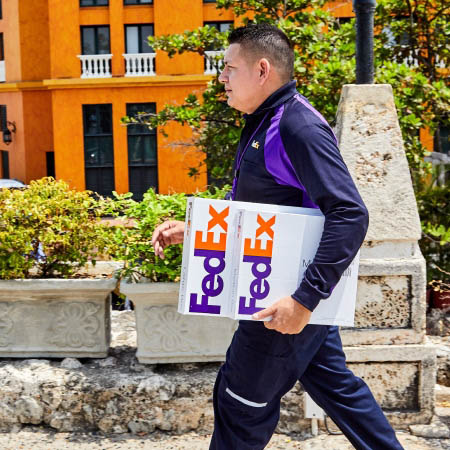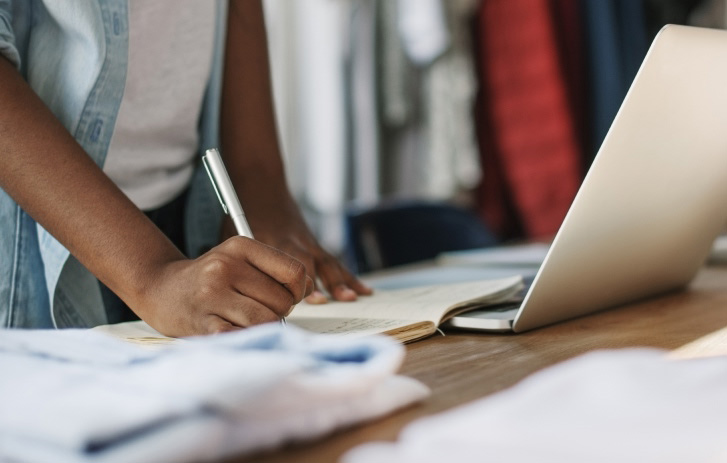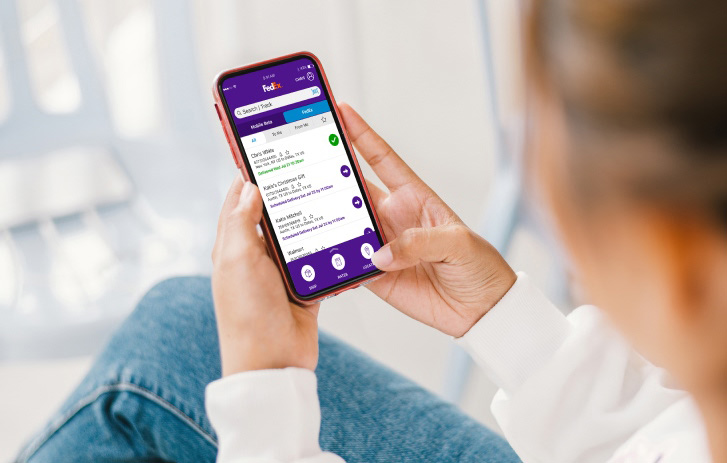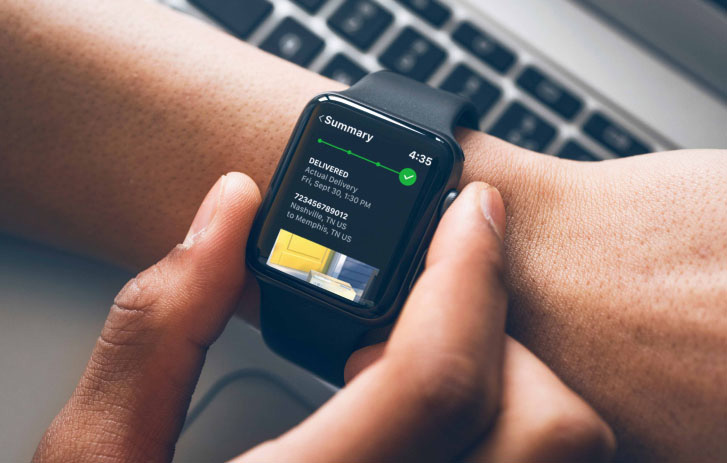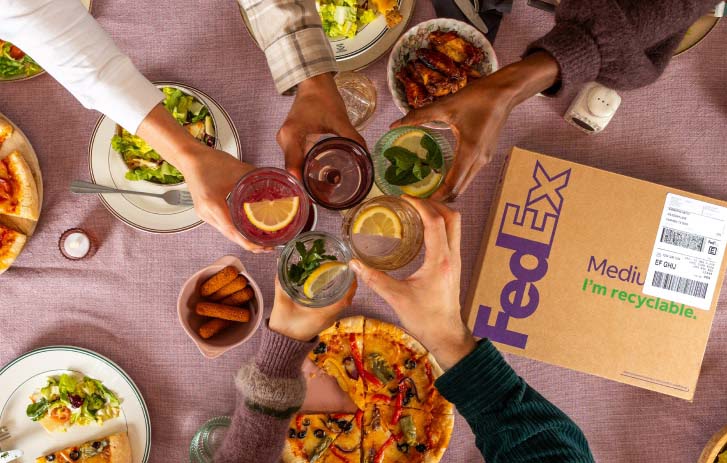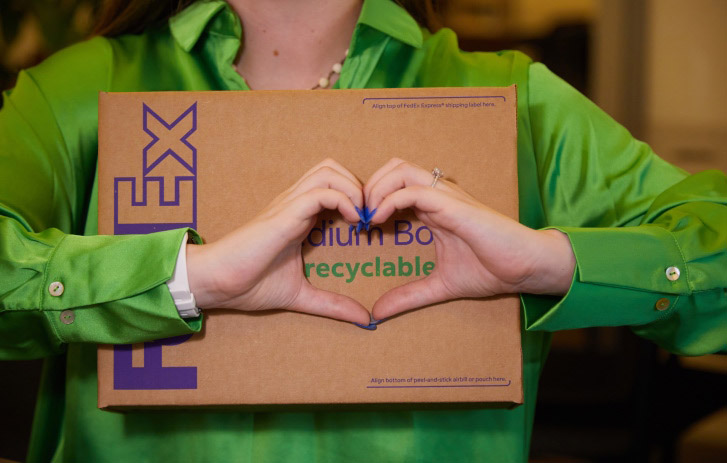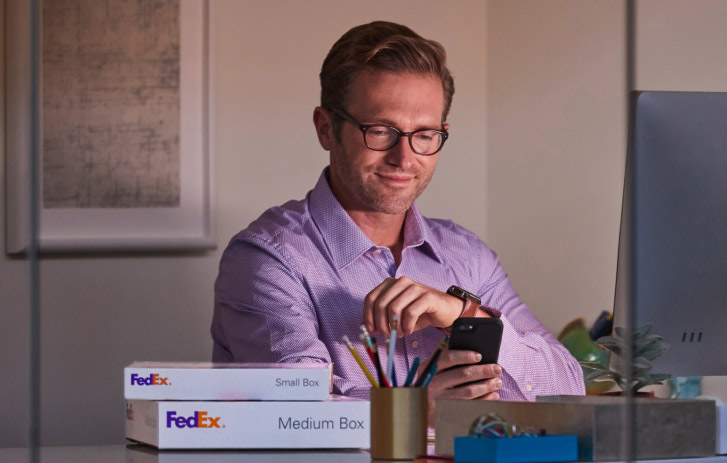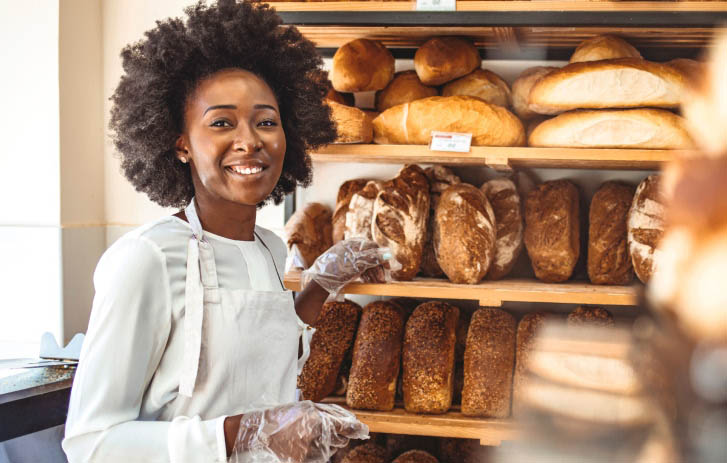Ship, manage, track, deliver
Why ship with FedEx?
Innovative solutions for reliability & speed
Whether it's across states or worldwide, we prioritize the secure and swift arrival of your shipments.
Premium shipping at professional rates
When you need reliable delivery and careful handling, trust FedEx to get your items where they need to go on time.
We ship everywhere*
From major cities to remote locations, your goods can reach worldwide.
FedEx can ship for less than the Post Office
Two-day retail shipping, one flat rate. FedEx One Rate®**
*FedEx doesn't ship anywhere sanctioned by the U.S.
**Exclusions apply. Visit the One Rate page to learn more.
Ship fast and track from anywhere
Send your tax return in time
The deadline is April 15. The IRS only accepts certain delivery services—including FedEx® overnight. Choose from three secure and reliable options.
Track important documents
Make tax time less taxing with FedEx Delivery Manager®. Get delivery notifications via email, text, or mobile app to stay updated.
Watch over packages on the go
Get the FedEx® Mobile app to track shipments. Get updates on your phone or Apple Watch®, including picture proof of delivery or delivery attempt.
Saturday and Sunday delivery. Now the weekend means more.
Gain a competitive edge
It's easy to offer fast Saturday and Sunday delivery to customers. They'll appreciate the added convenience, especially if they're not available to receive deliveries during the week.*
*FedEx Home Delivery offers service 7 days a week, delivering to 98% of the U.S. population on Saturdays, and nearly two-thirds of the U.S. population on Sundays.
Gain a competitive edge
It's easy to offer fast Saturday and Sunday delivery to customers. They'll appreciate the added convenience, especially if they're not available to receive deliveries during the week.*
*FedEx Home Delivery offers service 7 days a week, delivering to 98% of the U.S. population on Saturdays, and nearly two-thirds of the U.S. population on Sundays.
*FedEx Home Delivery offers service 7 days a week, delivering to 98% of the U.S. population on Saturdays, and nearly two-thirds of the U.S. population on Sundays.
Get more value from your business shipping
Pack orders more responsibly
April 22 is Earth Day, but reducing waste can be a year-round goal. Minimizing packaging can also reduce your shipping costs—while still protecting products.
Turn your shipments into rewards
Earn gift cards from name-brand retailers when you ship. And get a $10 gift card when you complete your first shipment.†
Ship perishables with confidence
The weather is warming up, but perishables need to stay cool, cold, or frozen. Find packing tips and shipping options to help you maintain the optimal temperature.
FedEx rate and surcharge changes
Learn more about rate and surcharge changes—last updated 1/17/2025.
FedEx money-back guarantee
We offer a money-back guarantee for select services. This guarantee may be suspended, modified, or revoked. Please check money-back guarantee for the latest status of our money-back guarantee.
†For details, please see FedEx Rewards Terms and Conditions.
